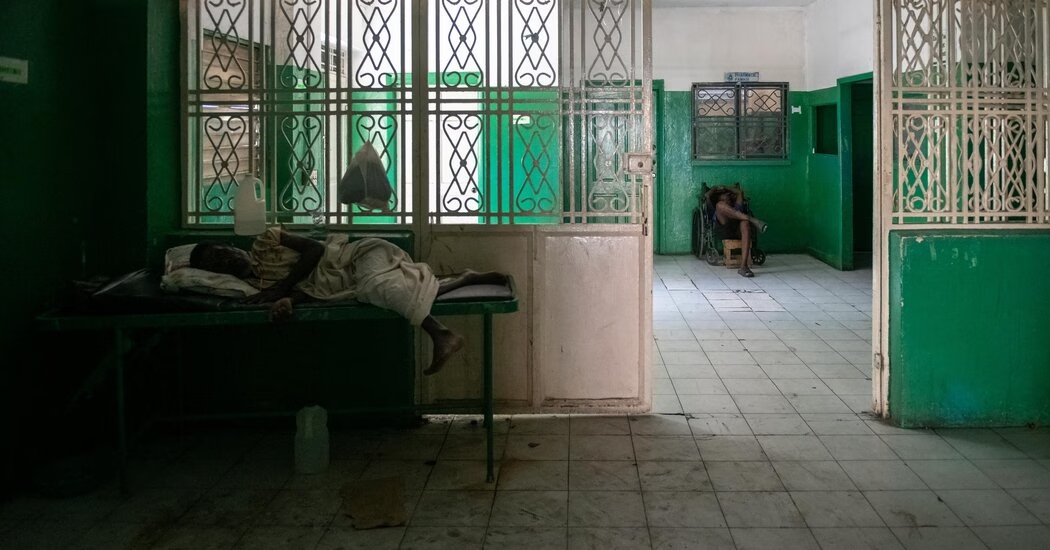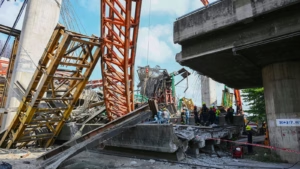Dr. Pierre S. Prince had big plans to step into his new role as the director of Haiti’s largest public hospital, a facility that had seen millions in renovations from the United States and sat in territory dominated by gangs. This hospital had been closed for a year due to the dangerous environment. However, Dr. Prince, a 57-year-old thoracic surgeon with roots at the institution, was ready to oversee the launch of a brand-new 500-bed wing, equipped with nearly $100 million in renovations and offering a range of medical services, including operating rooms, orthopedic, and maternity and neonatal units.
Disaster struck on Christmas Eve as Dr. Prince prepared for the partial reopening of the hospital. Gangs attacked a news conference to announce the reopening, killing a police officer and two reporters, and wounding seven journalists. The hospital’s reopening was aborted.
The situation deteriorated when social media videos, verified by The New York Times, showed gang members setting fire to an older building within the hospital complex. Dr. Prince reported a decline in staff morale, with doctors leaving and interns feeling depressed. This mirrored the dire state of Haiti, where 20% of the population faces acute hunger, and 1 million people have fled their homes due to violence, making the country heavily reliant on foreign aid, including up to $400 million annually from the United States alone.
However, with Elon Musk cutting foreign aid and dismantling the U.S. Agency for International Development, the hospital’s renovations and similar projects are at risk. The renovations were already troubled by significant delays and cost overruns. The country’s capital, Port-au-Prince, has become increasingly lawless despite billions in international aid, with the general hospital embodying the faltering of such efforts. The hospital, originally built by the U.S. Army in the early 20th century, served the poor and housed critical healthcare services until it was severely damaged in the 2010 earthquake.
Despite international financial commitments, including $40 million from France and $25 million from the United States, the renovation project was set to finish nine years behind schedule. The political situation worsened with the assassination of the president in 2021 and a rise in kidnappings and killings. U.S. AID had to increase its funding as the local government could no longer afford its share.
In July 2022, the hospital workers were paid to stay home as the area became too perilous. Gangs looted the hospital, stealing electrical wiring, plumbing, and equipment. The recent damage might cause a two-year delay in reopening, if ever possible. Project Medishare for Haiti’s chairman, Dr. Barth Green, lamented the significance of the hospital as a training ground for healthcare professionals.
The future of the hospital project is uncertain as the U.S. State Department, now overseeing USAID, conducts an assessment aimed at restructuring assistance to align with U.S. interests. Despite criticism of the vast sums of money spent in Haiti with little to show, the newly appointed Prime Minister of Haiti, Alix Didier Fils-Aimé, expressed a desire to work with President Trump to bring economic growth and security to Haiti.
Source: https://www.nytimes.com/2025/03/15/us/haiti-hospital-fire-usaid.html





